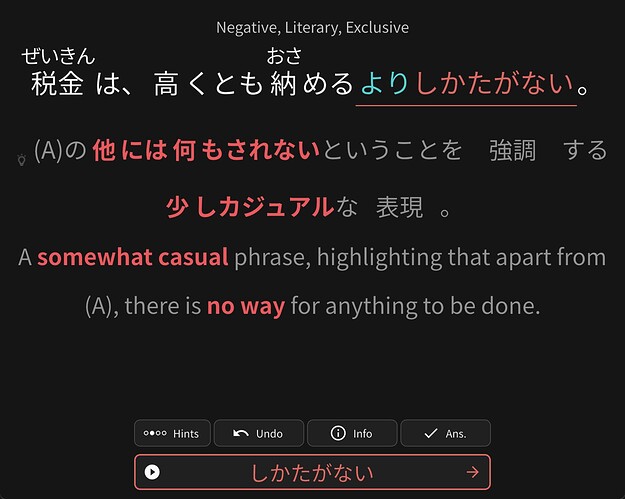What’s the difference between vより仕方がない and v仕方がない?
In Bunkei jiten, these seem to be interchangeable except for the longer version being more formal.
【しかたがない】
- しかたがない
(1)電話の通じない所で、しかたがないから電報を打った。
Since it was a place with no telephone connections, I had no choice but to send a telegram.
(2)こんなことができないなんて、しかたがない人ね。
You can’t even do something like this—you’re hopeless, aren’t you!
(3)行きたくないけど行くしか仕方がない。
I don’t want to go, but I have no other choice.
(4)会えないなら引き返すよりしかたがない。
If we can’t meet (them), we have no choice but to go back.
Means that there is no other way. Also used in the forms V-るしかしかたがない and V-るよりしかたがない, as in (3) and (4) respectively. Example (2) means the person is incompetent or troublesome. In spoken language, the form しょうがない is also used

